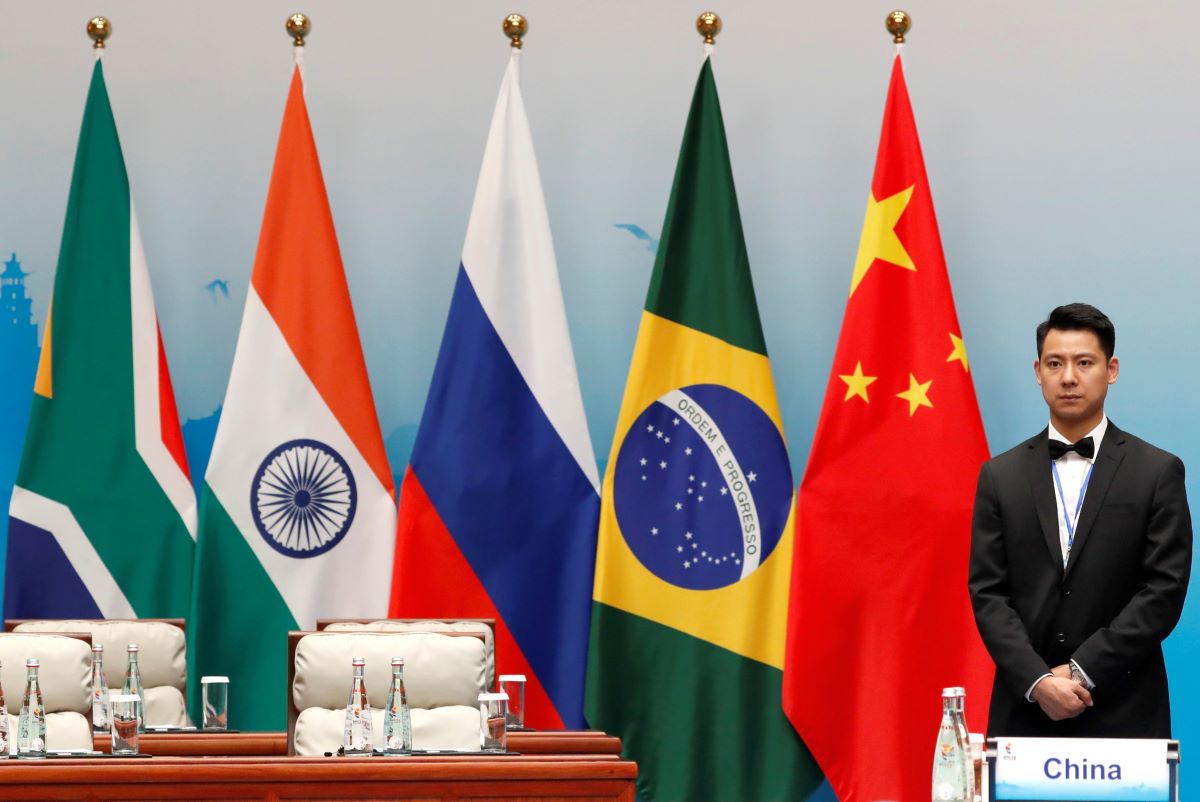ARTICLE AD BOX

- Twenty-three countries have shown interest in joining the BRICS coalition in 2025, signaling a shift in global economic alliances as emerging markets aim to enhance their influence amid Western dominance.
- Among the countries considering BRICS membership are Chad, Egypt, the Republic of the Congo, and Kuwait.
BRICS, an acronym for Brazil, Russia, India, China, and South Africa, was formed to provide a platform for collaboration among some of the world’s largest emerging economies. Over the years, the coalition has focused on promoting peace, security, and development while advocating for de-dollarization for over a decade. As reported by the Russia News Agency, several nations are considering joining the BRICS coalition this year, reflecting the desire of countries to reassess and diversify their geopolitical alliances.
Russian Presidential Aide Yury Ushakov has stated that the doors of the association remain open to like-minded countries. BRICS has currently attracted interest from over two dozen countries, including Cambodia, Chad, Equatorial Guinea, Honduras, Sri Lanka, Syria, Venezuela, Laos, Kuwait, Azerbaijan, Bangladesh, Morocco, Myanmar, Nicaragua, Pakistan, Palestine, Senegal, South Sudan, and Zimbabwe.
The president emphasized that uncontrolled expansion would compromise the association’s foundation. Instead, BRICS advocates for a gradual, harmonized, and well-planned approach, mirroring the steps taken during its chairmanship.
This year, Brazil has taken on the presidency of the BRICS group, emphasizing enhancing relationships with partner nations and promoting initiatives aimed at reducing reliance on the dollar. Under Brazil’s leadership, the BRICS annual summit is expected to happen as early as July 2025.
The 2024 BRICS summit marked a significant milestone, welcoming new countries and highlighting the growing interest among nations seeking alternatives to the Western-dominated trade and currency models. Notable entrants to this expanding coalition include Egypt, Ethiopia, Iran, Saudi Arabia, and the United Arab Emirates (UAE).
BRICS Advances Its De-dollarization Agenda
BRICS is currently considering the establishment of a G20-like structure to enhance cooperation and tackle issues specific to the alliance. The Group of 20 (G20) comprises 19 sovereign nations along with representation from the EU and the AU, that address critical global economic and financial challenges. While all BRICS nations are members of the G20, the coalition is looking to form its own group to prioritize initiatives aligned closely with BRICS objectives.
This new framework may deliberately exclude Western nations, enabling BRICS to focus on key areas such as local currency trading and other strategies that resonate with its goals.
These developments unfold amid an ultimatum from U.S. President-elect Donald Trump, who has warned of punitive actions against any country that undermines the dollar. He has threatened to impose high tariffs and trade barriers on BRICS nations that pursue such measures.
Adding complexity to the situation, Turkey, despite being a NATO member and aspiring to be the first nation to join both alliances, has chosen not to proceed with BRICS membership. After advocating for membership throughout the year, Turkey ultimately declined the initial offer that was presented to it.
In a similar turn of events, Saudi Arabia has decided to suspend its membership process after previously agreeing to discussions during the 2023 annual summit. This decision further complicates the challenges faced by the BRICS economic bloc during its formative stages.
.png)
 2 days ago
2
2 days ago
2








 English (US)
English (US)